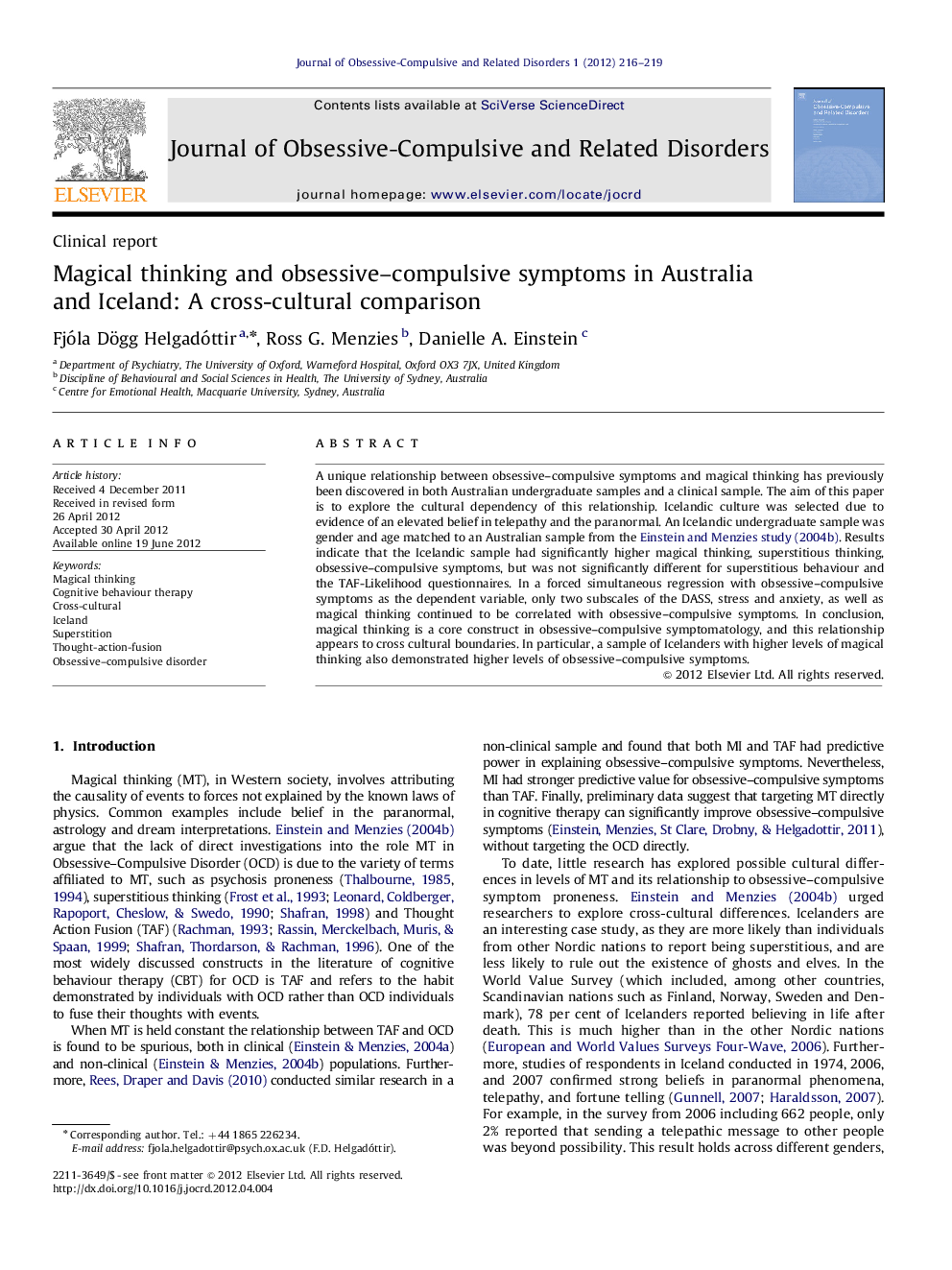| کد مقاله | کد نشریه | سال انتشار | مقاله انگلیسی | نسخه تمام متن |
|---|---|---|---|---|
| 912351 | 918209 | 2012 | 4 صفحه PDF | دانلود رایگان |

A unique relationship between obsessive–compulsive symptoms and magical thinking has previously been discovered in both Australian undergraduate samples and a clinical sample. The aim of this paper is to explore the cultural dependency of this relationship. Icelandic culture was selected due to evidence of an elevated belief in telepathy and the paranormal. An Icelandic undergraduate sample was gender and age matched to an Australian sample from the Einstein and Menzies study (2004b). Results indicate that the Icelandic sample had significantly higher magical thinking, superstitious thinking, obsessive–compulsive symptoms, but was not significantly different for superstitious behaviour and the TAF-Likelihood questionnaires. In a forced simultaneous regression with obsessive–compulsive symptoms as the dependent variable, only two subscales of the DASS, stress and anxiety, as well as magical thinking continued to be correlated with obsessive–compulsive symptoms. In conclusion, magical thinking is a core construct in obsessive–compulsive symptomatology, and this relationship appears to cross cultural boundaries. In particular, a sample of Icelanders with higher levels of magical thinking also demonstrated higher levels of obsessive–compulsive symptoms.
► Magical thinking, worry, tension and physiological are highly allied with obsessive–compulsive symptoms in Icelandic sample.
► Icelanders who demonstrate high levels of magical thinking are likely to demonstrate inflated obsessive–compulsive symptoms.
► Magical thinking appears to underpin Thought-Action-Fusion's relationship with obsessive–compulsive symptoms.
► This is a result that holds across cultures.
Journal: Journal of Obsessive-Compulsive and Related Disorders - Volume 1, Issue 3, July 2012, Pages 216–219